The integration of blockchain technology into the healthcare industry holds great promise. As the world becomes increasingly digital, healthcare systems must adapt to address challenges such as data security, patient privacy, and inefficient processes. Blockchain, known for its decentralized and secure nature, offers a unique solution to these issues. In this blog post, we will explore the potential of blockchain in healthcare, its impact on data security, and how it is empowering patients like never before.
Introduction: Why Blockchain Matters in Healthcare
In today’s digital world, healthcare systems are under constant pressure to improve efficiency, reduce costs, and ensure the security of patient data. Traditional methods of storing and sharing health records have inherent vulnerabilities that are prone to hacking, unauthorized access, and data breaches. Blockchain in healthcare has the potential to transform this landscape by offering a decentralized platform that ensures greater security, transparency, and patient control over personal health data.
Blockchain is a distributed ledger technology where each transaction or data entry is encrypted and linked in a chain, making it nearly impossible to tamper with or alter past records. This innovative approach to data management is not only more secure but also more transparent, providing a greater level of accountability. The healthcare sector, with its complex networks of hospitals, insurers, and patients, stands to gain significantly from blockchain’s ability to streamline operations and improve data security.
How Blockchain Enhances Data Security in Healthcare
One of the most compelling reasons for adopting blockchain in healthcare is its ability to secure patient data. Health records, which often contain sensitive personal information, are prime targets for cyberattacks. With blockchain, each patient’s medical records are stored in encrypted blocks, and only authorized individuals can access them. The decentralized nature of blockchain ensures that there is no single point of failure, making it far more difficult for hackers to compromise the entire system.
Traditional databases rely on centralized servers, which can be vulnerable to attacks. A breach in a centralized system can expose a vast amount of personal information at once. Blockchain, on the other hand, eliminates this risk by distributing data across multiple nodes. Even if one node is compromised, the rest of the network remains secure, ensuring that patient data is always protected. Furthermore, any changes to the data are logged on the blockchain, creating an immutable audit trail that enhances transparency and accountability.
Streamlining Healthcare Processes with Blockchain Technology
Blockchain in healthcare is not just about data security; it is also about improving the overall efficiency of healthcare operations. By enabling the secure sharing of patient information between healthcare providers, blockchain eliminates the need for redundant paperwork and reduces the time spent on administrative tasks. This streamlined approach allows healthcare professionals to focus more on patient care rather than navigating complex systems for accessing medical records.
In addition to improving the sharing of medical information, blockchain can also simplify billing and payment processes. Smart contracts—self-executing contracts with the terms directly written into the code—can automate insurance claims and payments, reducing errors and speeding up reimbursement cycles. This not only improves the patient experience but also lowers administrative costs for healthcare providers.
Patient Empowerment Through Blockchain Technology
One of the most transformative aspects of blockchain in healthcare is the way it empowers patients. With traditional systems, patients often have limited access to their health data, and they rely on healthcare providers to control how and when their records are shared. Blockchain changes this dynamic by giving patients complete control over their health information.
Through blockchain, patients can grant or revoke access to their data with the click of a button. This means they can decide who gets to view their records, whether it’s a primary care physician, a specialist, or a researcher conducting a study. Additionally, blockchain allows patients to track the history of their medical data, ensuring that they are fully informed about their health journey. This transparency promotes trust between patients and healthcare providers, fostering better relationships and improving the quality of care.
Blockchain’s Role in Enhancing Healthcare Research and Innovation
Beyond data security and patient empowerment, blockchain also plays a crucial role in accelerating healthcare research and innovation. Medical research often relies on access to large datasets, but sharing such data can be complicated by privacy concerns and data protection laws. Blockchain provides a secure, transparent platform for researchers to access anonymized patient data without violating privacy regulations.
By enabling the secure exchange of data, blockchain can help researchers identify patterns, track outcomes, and accelerate the development of new treatments. Furthermore, blockchain-based platforms can facilitate the collaboration of researchers across different institutions, fostering a global approach to solving healthcare challenges. This could lead to groundbreaking discoveries and innovations that might otherwise take years to achieve.
Overcoming Challenges in Blockchain Adoption for Healthcare

While blockchain in healthcare holds immense potential, there are several challenges that must be addressed before widespread adoption can occur. One of the main barriers is the need for standardized regulations and protocols. Healthcare is a heavily regulated industry, and integrating blockchain into existing systems requires careful consideration of legal and compliance issues. Different countries may have varying laws regarding data privacy, and it will take time to establish global standards for blockchain-based healthcare systems.
Another challenge is the need for widespread education and training. Many healthcare professionals and administrators may not be familiar with blockchain technology, and its implementation will require significant investment in training and resources. Additionally, the scalability of blockchain networks needs to be addressed, as the volume of healthcare data can be enormous, and ensuring that blockchain systems can handle this scale is crucial.
The Future of Blockchain in Healthcare
Despite these challenges, the future of blockchain in healthcare looks bright. As more pilot projects and case studies demonstrate the technology’s effectiveness, it is likely that blockchain will become an integral part of healthcare systems around the world. The continued development of blockchain infrastructure, coupled with the growing awareness of its benefits, will pave the way for greater adoption.
Blockchain’s potential to improve data security, streamline processes, and empower patients offers a compelling case for its integration into healthcare systems. By providing a secure, transparent, and efficient platform for managing health data, blockchain can help create a more patient-centered healthcare ecosystem that is better equipped to meet the challenges of the digital age.
Conclusion: Blockchain’s Role in Shaping the Future of Healthcare
Blockchain in healthcare is poised to transform the industry in ways that were once unimaginable. From securing patient data to empowering individuals with control over their health information, blockchain offers solutions that address some of the most pressing issues facing the healthcare sector today. While challenges remain in terms of adoption and regulation, the technology’s potential to improve patient outcomes, reduce costs, and streamline processes cannot be overlooked.
As the healthcare industry continues to evolve, blockchain technology will undoubtedly play a crucial role in shaping its future. By embracing blockchain, healthcare providers, patients, and researchers can work together to create a more secure, efficient, and patient-centered healthcare system. The promise of blockchain is just beginning to be realized, and its impact on healthcare will only continue to grow in the coming years.


